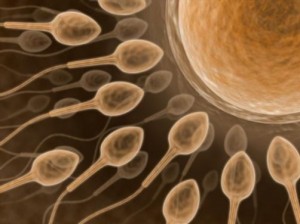 Nearly 30 percent of all couples that have fertility problems are due to an infertility problem with the male. It is a common misconception that most fertility issues are due to the woman not being able to have children, however men can certainly suffer from one of a number of reproductive problems. According to BabyCenter, the following are just a few of the reasons why men could face reproductive problems:
Nearly 30 percent of all couples that have fertility problems are due to an infertility problem with the male. It is a common misconception that most fertility issues are due to the woman not being able to have children, however men can certainly suffer from one of a number of reproductive problems. According to BabyCenter, the following are just a few of the reasons why men could face reproductive problems:
- Lifestyle Factors –
Certain lifestyle choices can affect fertility, such as drugs, poor nutrition and weight. These factors can negatively affect sperm count which can make it difficult to fertilize an egg.
- Ejaculatory Blockages –
A block in the duct which allows sperm to meet with ejaculate can cause infertility. This is similar to what occurs with a male who has undergone a vasectomy.
- Varicocele –
Increased size and blood in the veins of the scrotum can cause this area to heat up, which can cause sperm production to decrease, thus leading to infertility.
- Irregular Sperm –
The quality, mobility and shape of sperm can all affect the likelihood of fertilizing an egg successfully.
- Sperm Antibodies –
When the body develops antibodies that attack sperm it can reduce the likelihood of fertilizing an egg and a man can become infertile.
However, fertility issues don’t necessarily have to be the end of a man’s aspirations to be a father. In fact, there are a number of treatment options to help men overcome their problem and help them to conceive.
A Natural Treatment for Infertility
The best natural and most affordable means to help treat fertility problems in men, and women, is through the incorporation of supplements into their daily diet. These supplements are geared toward addressing the issues that most commonly plague men who have difficulty with fertility, using ingredients that have been proven to treat these problems. Some of the most common ingredients to be found in men’s natural fertility supplements, commonly referred to as male prenatal vitamins, include:
- L-methionine – Low sperm counts can greatly decrease a man’s chance of fertilizing an egg, and L-methionine can help to increase that sperm count.
- Vitamin A – Sperm that is unable to travel properly to fertilize an egg can be positively improved through the use of vitamin A inclusive supplements.
- Lycopene – Sperm with damaged DNA can reduce its ability to fertilize an egg as well. The inclusion of lycopene in a supplement can help to keep DNA intact.
- Glutathione – Glutathione is intended to help normalize the shape of sperm, which can measure the success of sperm in fertilizing eggs
Additional ingredients that can be found in some supplements for males include folic acid, Coenzyme Q10, Zinc and Selenium. Depending on the supplement that you choose to aid in fertility problems there might be additional patented ingredients that are intended to deliver results as well.
Male fertility problems are more common than many people think, but before you opt for a costly physicians’ treatment, or give up on dreams of becoming a father, look to natural ways to better your issue.
Image Source: http://cacrm.com/fertility-resources/male-infertility/























